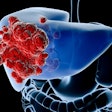A colonoscopy screening program is expected to have a powerful impact on colorectal cancer (CRC) deaths in Germany, despite a low rate of participation among eligible participants, according to the first published results of an eight-year study of nearly 2 million screened individuals.
Colonoscopy has been offered free of charge in Germany since 2002 to participants 55 years and older. In the study, Dr. Hermann Brenner and colleagues examined the results of 1,875,708 screening exams that led to 73,000 diagnoses of colorectal cancer in the country since 2003.
The researchers are from the German Cancer Research Center in Heidelberg and the Central Research Institute of Ambulatory Health Care in Berlin (European Journal of Cancer, February 17, 2009, doi:10.1016j.ejca.2009.02.017).
The researchers combined data from the exams with previously reported estimates of the transition rates of advanced adenomas to colorectal cancer and with national population projections. Although the number of advanced adenomas discovered remains nearly constant over the years, the number of prevented colorectal cancer cases rises each year because many of the adenomas removed would have eventually become cancerous.
Among the eligible participants between 55 and 69 years of age, annual participation averaged 3% in men and 4% in women (corresponding to program participation of 30% and 40%, respectively, during the 10-year interval for participation). Participation declined after age 70.
Despite relatively low screening participation rates among the eligible participants, "incident CRC cases are expected to be reduced by more than 15,000 between 2003 and 2010," the researchers reported.
Based on the data, the greatest effect on colorectal cancer cases is expected to be found among participants ages 55-59 years, 60-64 years, and 65-69 years, in whom total CRC case numbers in 2010 are expected to be reduced by 13%, 19%, and 14% among women, and by 11%, 15%, and 12%, respectively, among men, Brenner and his team wrote.
"Our study suggests major reductions in CRC incidence to be expected from detection and removal of advanced adenomas in Germany [for] ages 55-69 already by 2010," the group concluded. "This benefit is expected to further increase in subsequent years. Even larger reductions could be achieved if participation rates, which are still at relatively low levels, can be increased."
Related Reading
ACR urges Congressional support for CT colonography, March 16, 2009
Reminders may increase colon cancer screening rates, February 26, 2009
CMS rejects case for virtual colonoscopy reimbursement, February 12, 2009
Study backs Finland's colon cancer screening, November 24, 2008
Initial polypectomy dramatically reduces colon cancer deaths, October 18, 2007
Adverse events weigh on colonoscopy mortality equation, February 6, 2006
Copyright © 2009 AuntMinnie.com



















